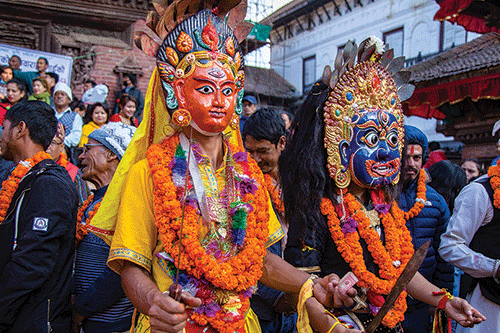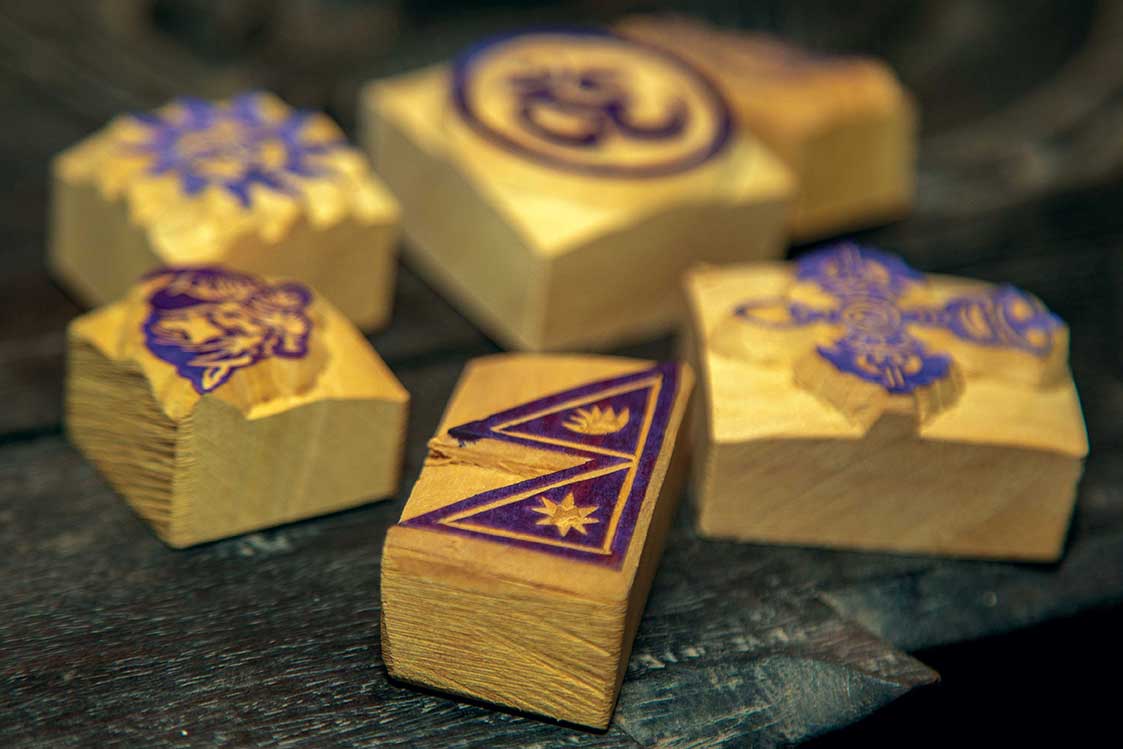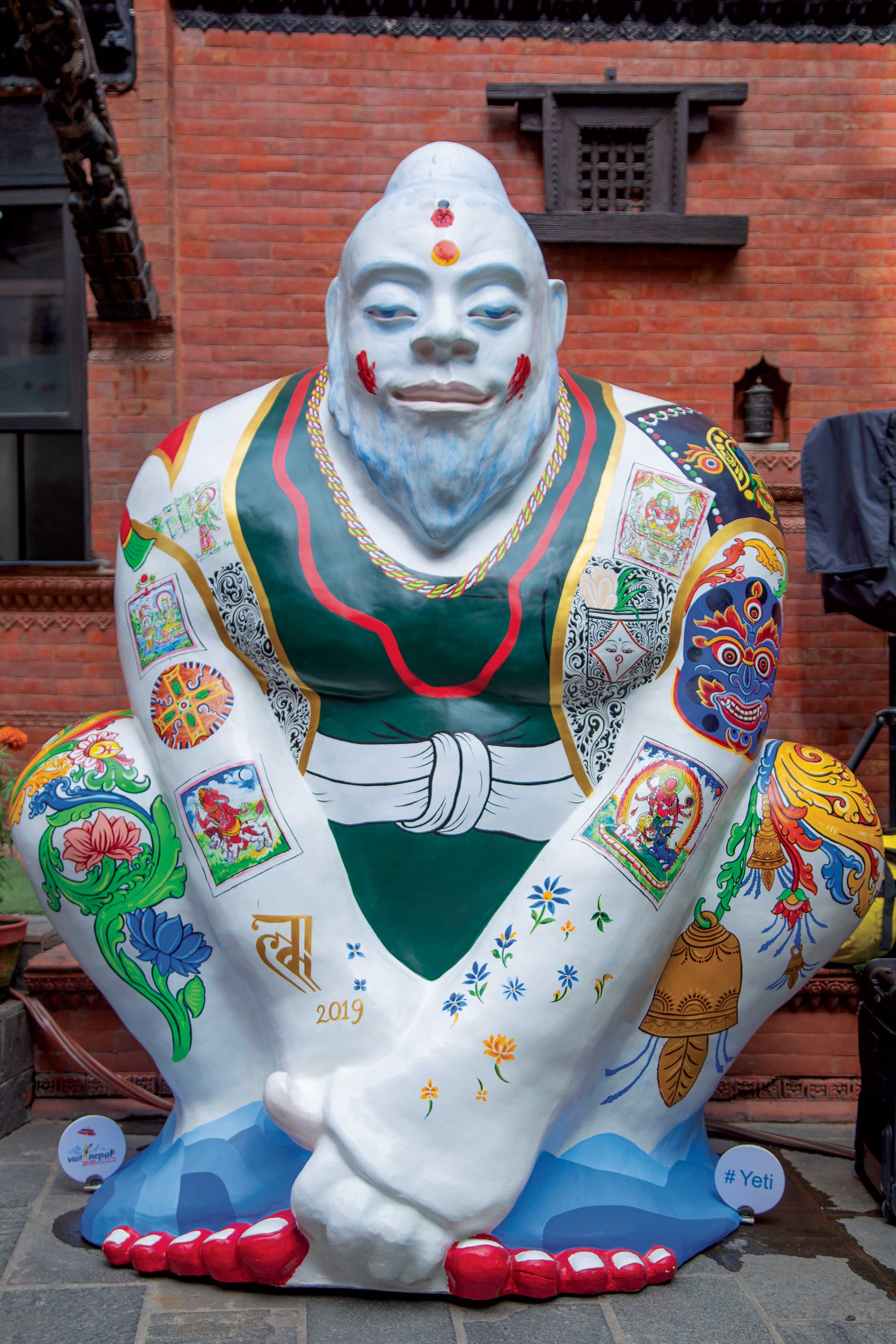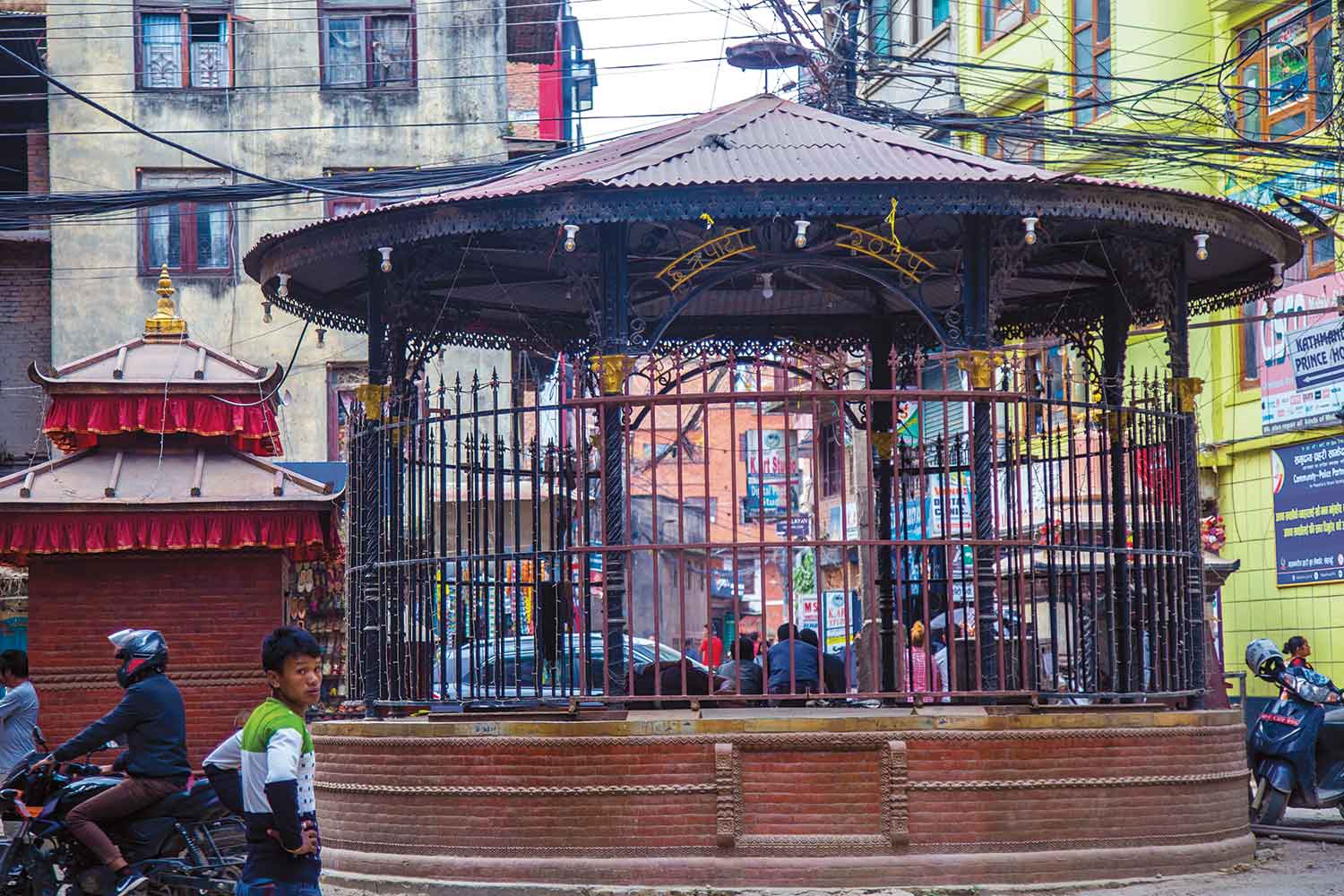If just the aroma of freshly-made sweets and munchies in Shree Nanda Mithai Bhandar transports you to a different world, imagine how ecstatic you would feel when you actually could have those sugary and savory delights. The sweet shop, located in a small alley called Mo: Madu Galli behind Krishna Mandir in Mangal Bazaar, is famous especially for its thick, milky, and creamy barfi; trying out a piece of the sweet made of fresh khuwa brought in all the way from Gotikhel will leave you craving for more. Another most sought-after delight here is lakhamari. With its perfect crispiness and sweetness, this item will surely win your heart. And, the colorful sight of laddu, lalmohan, anarsa, peda, roth, gudpak, nimki, balbara, and fini stacked neatly on the shelves of the shop is definitely a pleasure to the eyes.



“My great-grandfather, Asha Lal Rajkarnikar, opened the sweet shop some one hundred-and-fifty years ago, and it has been in operation since then,” shares Radha Krishna Rajkarnikar, the current owner of the shop. Being the fourth generation owner, he first started helping his father in the business when he was ten years old. He has heard about (and seen) different transformations the shop has gone through over the years. The shop was initially popular among people living in Patan, whereas now it’s famous around Bhaktapur and Kathmandu, too, and even among the Nepali diaspora living abroad, from whom they receive orders, especially for lakhamari. His great-grandfather used to make the sweets himself, using a firewood stove, and serve the sweets in bota and Nepali paper.

As a remembrance of their ancestors, the family still has the old stove marbled and preserved in the shop. The old wooden racks used to store the sweets, however, had to be replaced with metal shelves for convenience. “We have grown a lot now, and have trained over seven staff members, who help us run the shop,” Rajkarnikar explains. He also reminisces that, during his grandfather’s time, a piece of jerry in his shop used to cost fifty paisa, while now the same item costs twelve rupees. Legend has it that the royal family in Patan Durbar, during the eighteenth century, needed people to make sweets, so they invited halwais from India. These halwais later settled here and changed their last names to Rajkarnikar, and they passed down the skills of the sweet business to their newer generations.
Making these food items is a very lengthy process and requires a lot of patience, says Sunil Lama, who was trained in the shop and has been working here for over fourteen years now. “One has to be very careful, be it while kneading the dough, cutting, frying, or adding sugar syrup and salt,” he explains. Some items get their texture from the generous use of Nepali ghee, while some require baking soda. The amount of baking soda, oil, and ghee, and the time set aside for dough to get a consistency, also should be calculated properly, as it greatly affects the texture of the items.
Shanti Tandukar, a regular customer of Shree Nanda Mithai Bhandar, says, “We’ve come all the way from Koteshwor to buy three kilos of lakhamari for our guthi function.” Her father-in-law has always loved all the items sold here, so her family has been visiting the shop for over sixty years now. Whenever they visit Krishna Mandir and Bhimsensthan, they make sure they buy jerry, swari, and halwa from the shop. She feels that everything sold in the shop is tasty, fresh, and not so oily, which makes them special and different from similar delights made in other shops.
Jerry, swari, halwa, sel, and malpua of this shop are extremely popular among devotees visiting the temples of Patan during the mornings. Unlike many other sweet shops, tea is not served alongside these breakfast items. The shopkeeper respects the sentiments of devotees and feels the need to keep his stove chokho (pure), because the devotees buy these items for worship.
 As sweets are vital for celebrations, worships, and functions like marriage, bratabandha, pasne, gufa, and guthi, the staff members in the shop are seen very busy especially during the wedding seasons and festivals. Lakhamari shaped as snakes, birds, fish, and frogs are ordered in high volumes for Supari functions of Newari marriages. People also buy sweets and savory items in bulk for festivals like Dashain and Tihar to offer to their guests. Furundana, the must-have snack of most Nepali households, is also available here and tastes really good.
As sweets are vital for celebrations, worships, and functions like marriage, bratabandha, pasne, gufa, and guthi, the staff members in the shop are seen very busy especially during the wedding seasons and festivals. Lakhamari shaped as snakes, birds, fish, and frogs are ordered in high volumes for Supari functions of Newari marriages. People also buy sweets and savory items in bulk for festivals like Dashain and Tihar to offer to their guests. Furundana, the must-have snack of most Nepali households, is also available here and tastes really good.
So, next time you are around Patan Durbar Square, do remember to stop by this sweet shop and try out their heavenly items—quite literally, pieces of living history that can be savored, enjoyed, and shared with friends and loved ones. The shop is open from 6:00 a.m. to 8:00 p.m. everyday all year round, except for a few days after Tihar, as the staff members take holidays during that time.











